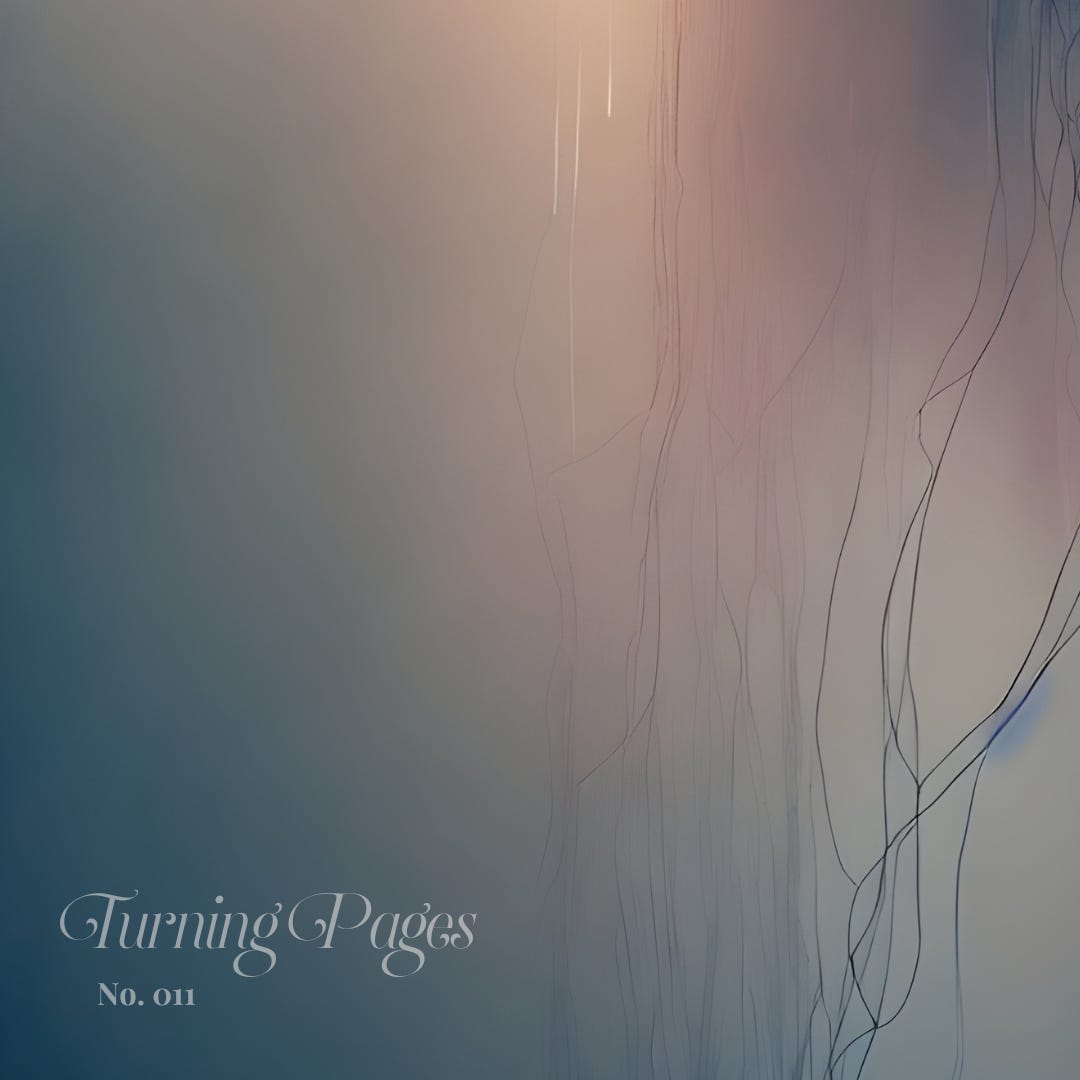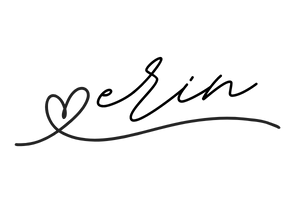Hey friends, how have you been? It's been a while. SO good to be here with you again! Also, GIANT WAVE to all my new readers! 👋 It means a lot to me that you are here. This post will give you a feel for what this space is all about. I'd love to hear from you, so please hit reply and say hello! ✨
No. 011
Wednesday, Oct. 11, 2023
Friendship—it sounds so straightforward, right? You meet someone, click, and voila, lifelong buddies.
Well, for the first half of my life, that formula seemed to have a missing variable for me, one that left me scribbling question marks over years of stumbled connections.
Childhood. Janie and I lived down the street from each other. We promised to be friends forever, as eight-year-olds do. That was easy enough when we saw each other every day, but when the middle school years sent us to different schools, "forever" turned out to be more slippery than the tadpoles we used to catch in the creek. We still saw each other occasionally, but it became clear that we were growing apart.
I’d sometimes plan to call her after school, but by the afternoon my mind was elsewhere, the phone call forgotten until guilt reminded me at bedtime. By high school, we belonged to different circles and barely spoke.
Life just got in the way—after all, everyone loses friends, right?
Young adulthood. It was the thrill of a lifetime to tie the knot with my high school sweetheart and to fly off with him on his first military duty assignment in Okinawa, Japan. He made new friends as naturally as he breathed and kept in touch with existing ones just as easily. But I avoided the phone like the plague, a death sentence for long-distance friendships pre-Facebook. I canceled plans and turned down invitations to spouse Tupperware parties almost as quickly as I received them, dreading awkward small talk.
The years we spent there eventually led to several great friendships, but in the military community, friendships are passing ships, brief and transient. Within a year of moving back stateside, they’d sailed into the sunset.
That’s nomadic military life—it’s just how things are, isn’t it?
Parenthood. As an expectant mother, adjusting to an unfamiliar community (Floridians in South Dakota, at that) wasn't easy. We'd barely learned how to shovel snow before our NICU baby was born early, plunging us into a sea of sleepless nights and diaper changes, doctor appointments and uncertainties. Then my husband was shipped off to war, leaving me alone with a sick baby, mountains of snow, and a serious case of postpartum depression.
Kind lunch date invitations from other spouses were met with genuine enthusiasm, but inevitably, the day before the event, anxiety would wrap its fingers around me as I came up with a million excuses not to go. More often than not, I'd cancel at the last minute, sewing seeds of disappointment in newfound friendships.
I was just exhausted—after all, it's hard for new parents to socialize, right?
Widowhood. When the unimaginable happened, I was left reeling; I never thought it would happen to us. The knock and the uniforms only existed in movies. Yet there I was, a widow at 25 with a baby to raise on my own, lost. People tried to help. Oh, how they tried. The same sweet ladies who patiently invited me for coffee appeared within hours, moving in unrehearsed choreography to prepare my baby and me to board a plane to greet my husband’s casket.
The next week was a blur of faces and calls, from the passing ships of our military life to my childhood playmates, offering condolences and support. Casseroles piled up and sympathy cards filled my mailbox as I existed, numb. Part of me wanted to respond, but I felt weakened, hindered not just by grief but by the same unknown force that had always kept others at arm's length. Phone calls went unreturned, thank you cards sat unsent on the counter. Slowly, the casseroles stopped coming, and the phone stopped ringing. Part of me wanted to scream, “I’m still here!” but the rest accepted it as my penance.
I was on the other side of the equation now—I deserved this, didn't I?
Soon after, I moved back home to be close to family and rebuild. But I was an outsider—too military for home but too civilian for the base, too single for the couples but too tied down for the singles. So, I immersed myself in motherhood. Well-meaning loved ones encouraged me to ask for help, but I resisted. I was fine, I told them. Totally fine, I told myself.
But at night, my little man sleeping, I found myself in a lonely, liminal space. I desired nothing and everything at once.
So, I turned to the one place where I felt at home—my first love, writing. I poured my heart into blog posts about grief and life and loss, making sense of my experiences before releasing them into the void. I didn't expect anyone to read it, but to my surprise, people did. And not just a few. The response was overwhelming.
My comfort zone stretched with each post I shared with the world until, eventually, almost as a spectator of my own bravery, I stepped outside of it. Over the next decade, I met other widows at conferences, jumped out of a plane, and shared parts of my story with a Swiss documentary filmmaker who was moved by my words. I earned two more degrees and visited ten new countries and fell in love again. But behind the scenes, a persistent presence kept me company, making me feel like an imposter.
I was just pretending like a kid—I’d inevitably screw it up, right?
Midlife. It wasn't until my son was a teenager that I finally faced reality. Each counseling session that brought him revelations served as a mirror to my own life, forcing me to see the truth about myself. With the first half of my life drawing to a close, I could feel it in my bones— it was time to stop avoiding the struggles that blurred the lines of who I am and how I want to live. It was time to break the patterns and start anew.
Eventually, in my own therapist's office, I stripped away the layers of pain, disappointment, regret. The adventures, the loves and losses, the mistakes. And in the process, I not only discovered my first true feelings of self-acceptance but also the name of my longtime silent companion: attention deficit disorder.
The question marks over the years of stumbled connections disappeared as memories replayed at lightning speed. The forgotten phone calls to Janie, the faded long-distance connections from Japan, the canceled lunch dates and procrastinated replies and awkward silences—this time in HD, as if I'd been given glasses after a lifetime of blurred vision.
Discovering my neurodivergence didn't magically make connecting easier. It did, however, reveal the variable that was missing from the formula. Accepting and embracing this unknown part of myself helped me understand my life more clearly, revealing patterns that had repeatedly undermined my friendships and destroyed my confidence.
It’s a strange thing to see a pattern so clearly that once was invisible, and even stranger to hold it in my hand and know that it doesn’t define me but guides me.
Beyond. As I stand on the threshold of my 40s and look back at the first half of my life, I want to scoop up that young girl promising ‘forever’ to Janie, that excited yet isolated young adult in Japan, the overwhelmed new mother and the grieving young widow, each iteration of me trying desperately to piece together the puzzle of connection. I wish I could travel back in time and whisper in their ears.
You're doing just fine—there's nothing wrong with you, just try again.
Instead, I’ll carry them with me as I step through the doorway into the second half of my life, and I’ll share their stories with new friends.
Friendship—it sounds so straightforward, right?
I hope you enjoyed reading this! If so, please click the ❤️ button below. This helps me choose topics to write about more often and makes it easier for others to find me on Substack. I’d also love to hear your thoughts if you’d like to comment or reply.
Thank you for your support! 🙏







"You're doing just fine—there's nothing wrong with you, just try again." Such a simple statement, but so right to the heart of what's needed. I wish I could tattoo this on the inside of my eyelids.
Very moving, and such a simple but profoundly beautiful line in 'You're doing just fine—there's nothing wrong with you, just try again.'.